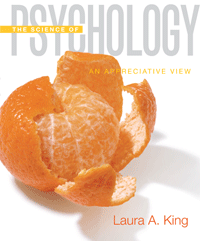1 A) Basic research B) Applied research C) Critical thinking D) Behaviorism 2 best represents critical thinking?A) Why would this woman agree to be in this advertisement? B) Is this woman a professional model? C) What would my friends think about my taking a weight-loss pill? D) Are there other possible explanations for the woman's weight loss, other than the pill being advertised? 3 A) Internal, mostly unconscious psychological forces B) Physical causes of psychological problems C) How the environment is constantly affecting our behavior D) How people find ultimate meaning in their lives 4 A) psychodynamic B) behavioral C) cognitive D) humanistic 5 A) monist. B) British empiricist. C) structuralist. D) functionalist. 6 A) examine his childhood experiences for the source of his lack of confidence. B) use free association to explore long-forgotten childhood experiences and traumas. C) work towards what is most important to him rather than focusing on his friends' ideas of what is attractive or on their insistence that he find someone to date. D) examine his thoughts and actions to see what keeps him stuck in this pattern. 7 A) disagree; siblings exhibit similarities learned from their parents B) disagree; one's environment changes based on one's responses to it C) agree; one's environment changes based on one's responses to it D) agree; siblings exhibit similarities learned from their parents





